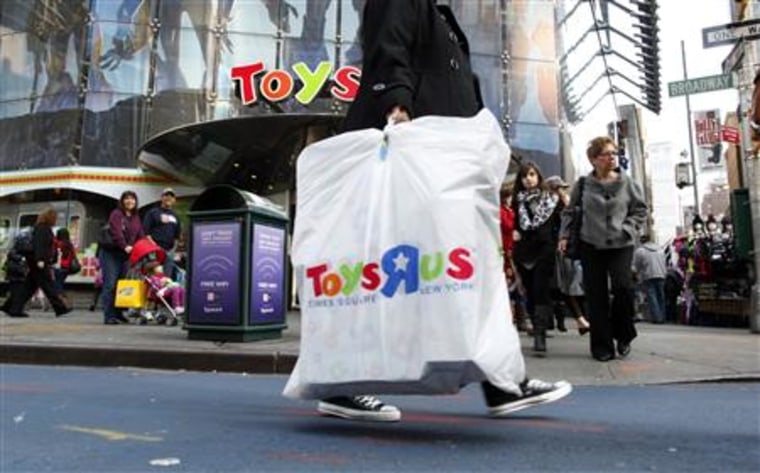Jason Thomas plans to gather with his family on Thursday afternoon for a Thanksgiving feast, which means he will have a few hours in the morning to get a bargain on a leather jacket or a flat-screen television.
In a trend that alarms traditionalists, the sharp financial downturn since 2007 has prompted an increasing number of U.S. stores to open on Thanksgiving, which has been one of the least consumer-oriented of American holidays.
Thomas, 26, a New York City security guard. said he could go shopping in the morning before his family gathers. "You might want to have a nice outfit (to wear) for your family. And then you can tell them — 'I got it for a steal!'"
But some critics say opening stores on one of the only days in the year they usually remained closed means less time relaxing, bonding with family members and passing traditions down to children.
"It's crass. There is a time and place for shopping," said Elena Brouwer, director of the International Etiquette Center in Florida. "People should have a conversation. That's what people should be doing on Thanksgiving."
The holiday celebrates the first successful harvest by European settlers in 1621, when they shared a feast Native American Indians.
For many Americans, the day spent in a orgy of eating turkey and pumpkin pie and watching a series of televised football games, has been the calm before the storm of "Black Friday", the official start of the holiday shopping season.
But Kathy Grannis, the spokeswoman for the National Retail Federation, said consumers appreciated the convenience of being able to shop on Thanksgiving while stores could maximize sales during the sluggish recovery.
"If it wasn't a great idea, retailers wouldn't have brought it back. There's no sense in spending the money to open your stores on Thanksgiving if you know your customer isn't interested," she said.
More than 18 million adults went shopping on Thanksgiving day in 2009, according to a survey by the federation, up from the 10.3 million who went out shopping on the holiday in 2005, when it began recording the data.
In 2008, during the worst financial crisis in decades, Thanksgiving shopping traffic rose by 48 percent.
Table manners lacking
Among the retailers open on Thanksgiving day are Wal-Mart, Sears Holdings Corp, and K-Mart, while many stores, including Target, are opening as early as 3 a.m. on Friday.
Carol Haislip, director of the International School of Protocol in Hunt Valley, Maryland, said Thanksgiving had become the one day of the year when all Americans, whatever their religion or ethnicity, gather around a dining table.
"It's the one time we have where no matter what, we all come together and everything else stops," she said.
She said that it was an important occasion for learning life skills, like table manners and artful small talk, but that was being lost. "People are not learning how to behave at the table, they're not learning how to be respectful of other people, not interrupting," she said.
Sageen Bair, 29, said she tries to avoid New York's pre-holiday shopping rush, but she said she wouldn't be surprised if some members of her family couldn't resist a promise of great bargains.
"Some people definitely will be out shopping. Some people can't pass up a sale," she said. "If it's a really, really, really good deal, I think everybody is hoping to get that.
In Manhattan, the crowds that flock to Macy's in the early hours of Black Friday will be greeted outside the department store by anti-commercialism guru Reverend Billy and his 40-person Life After Shopping gospel choir.
"They consider the time we spend alone with our families as an under-exploited market," he said. "We try to take the theater of retail and deploy it against itself."
